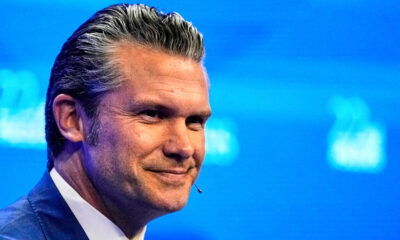There cannot be many international crime leaders inspired by “The Princess Bride”, a cult children’s fantasy movie released in 1987. Ross Ulbricht, the founder of the Silk Road, the very first dark-web drug-trading network, certainly was. When users signed up for the website, which went live in 2011, they were greeted by a message from the founder, “Dread Pirate Roberts”, the hero of the film, explaining how the site worked. Shielded by Tor, which hides website servers, and using bitcoin to make payments, users could order all manner of goods and services without revealing personal information.
The combination of the two technologies, Tor and cryptocurrency, allowed the creation of something like an Amazon Marketplace, only for illegal drugs. Users could anonymously order parcels to their homes, without ever having to encounter a scary drug-dealer in person. Dread Pirate Roberts was its delightful outlaw organiser. Until, of course, in 2013 the Silk Road was shut down by FBI agents and Mr Ulbricht, then 29 years old, was arrested in the science-fiction section of a San Francisco public library. In 2015, after a four-week trial, he was convicted of various offences and sentenced to life in federal prison. And that is where he sat until January 21st, when Donald Trump pardoned him.
“The scum that worked to convict him were some of the same lunatics who were involved in the modern day weaponisation of government against me,” wrote Mr Trump on his social-media platform, Truth Social. The president, who has mused about executing drug-traffickers, said that two life sentences were a “ridiculous” punishment. He was also honest about his reason for the pardon. It was, he said, in honour of America’s libertarian movement, “which supported me so strongly”.
The pardon exemplifies Mr Trump’s brand of transactional politics. He originally promised to commute Mr Ulbricht’s sentence at the Libertarian Party’s national convention last May. In exchange, many of the party’s supporters voted tactically for Mr Trump over their own candidate in November. Promises made, promises kept. And yet the way in which Mr Ulbricht’s cause was taken up by libertarian voters is also revealing. As Dread Pirate Roberts, he represented a type of internet anarchism that has, with the rise of cryptocurrency, grown hugely influential.
Mr Ulbricht was caught because of a stupid mistake—he posted his own email address using an account he had used to promote the Silk Road. And yet in the case against him, prosecutors suggested he was also a violent criminal who had paid a hitman to take out an informer. What they did not reveal was that the supposed hitman was in fact a Drug Enforcement Administration agent, Carl Mark Force IV, who was using his knowledge of the case to extort bitcoin from Mr Ulbricht. The informer and his murder were fake. Mr Force and another agent, Shaun Bridges, later pleaded guilty to corruption offences.
Mr Ulbricht’s supporters use this to argue that their man was unfairly punished. According to a commentary posted on the “Free Ross” website, which operates with the support of his family, Mr Ulbricht “is a peaceful first-time offender”. Or as Angela McArdle, the chairwoman of the Libertarian National Committee, put it after his release, Mr Ulbricht was a “political prisoner”, and “one of our own”. The Silk Road, she argued, was a libertarian project, all about “economic independence”.
That is a stretch. When Mr Ulbricht was arrested, the government seized 144,000 bitcoin he had accumulated in commission on drug trades, then worth around $30m (and rather more now). He may not have killed anyone, but Mr Ulbricht was arguably the first serious cryptocurrency criminal. The Silk Road was to organised crime a little like what Napster was to the music industry. Had he not been caught, Mr Ulbricht would plausibly be a billionaire by now.
Nowadays, not only are dark-web markets still thriving, but bitcoin is also used as a means of money-laundering for more offline drug-dealing. Ransomware, a type of extortion dominated by Russian crime groups, would be impossible without it. “Cryptocurrency is foundational to modern cybercrime,” says Jamie MacColl of the Royal United Services Institute, a British think-tank. In “The Princess Bride”, Dread Pirate Roberts is revealed to be more than one man. The moniker shifts from one pirate to another. Mr Ulbricht is free again. But he is no longer Dread Pirate Roberts; now they are everywhere. ■
Stay on top of American politics with The US in brief, our daily newsletter with fast analysis of the most important political news, and Checks and Balance, a weekly note from our Lexington columnist that examines the state of American democracy and the issues that matter to voters.

 Blog Post7 days ago
Blog Post7 days ago
 Economics1 week ago
Economics1 week ago
 Finance1 week ago
Finance1 week ago
 Economics1 week ago
Economics1 week ago
 Economics1 week ago
Economics1 week ago
 Personal Finance1 week ago
Personal Finance1 week ago
 Economics1 week ago
Economics1 week ago
 Accounting1 week ago
Accounting1 week ago



















